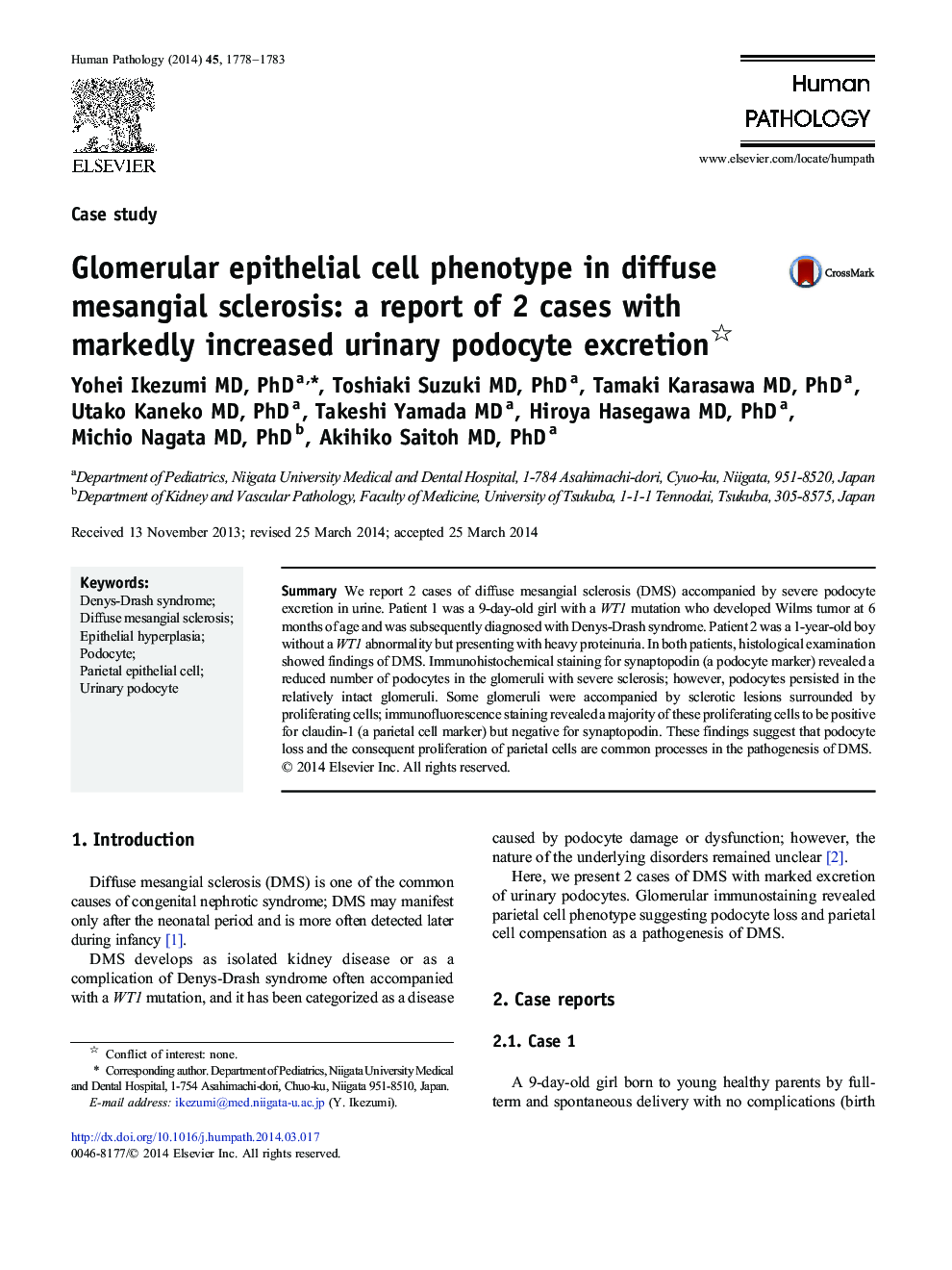| Article ID | Journal | Published Year | Pages | File Type |
|---|---|---|---|---|
| 6215755 | Human Pathology | 2014 | 6 Pages |
SummaryWe report 2 cases of diffuse mesangial sclerosis (DMS) accompanied by severe podocyte excretion in urine. Patient 1 was a 9-day-old girl with a WT1 mutation who developed Wilms tumor at 6 months of age and was subsequently diagnosed with Denys-Drash syndrome. Patient 2 was a 1-year-old boy without a WT1 abnormality but presenting with heavy proteinuria. In both patients, histological examination showed findings of DMS. Immunohistochemical staining for synaptopodin (a podocyte marker) revealed a reduced number of podocytes in the glomeruli with severe sclerosis; however, podocytes persisted in the relatively intact glomeruli. Some glomeruli were accompanied by sclerotic lesions surrounded by proliferating cells; immunofluorescence staining revealed a majority of these proliferating cells to be positive for claudin-1 (a parietal cell marker) but negative for synaptopodin. These findings suggest that podocyte loss and the consequent proliferation of parietal cells are common processes in the pathogenesis of DMS.
